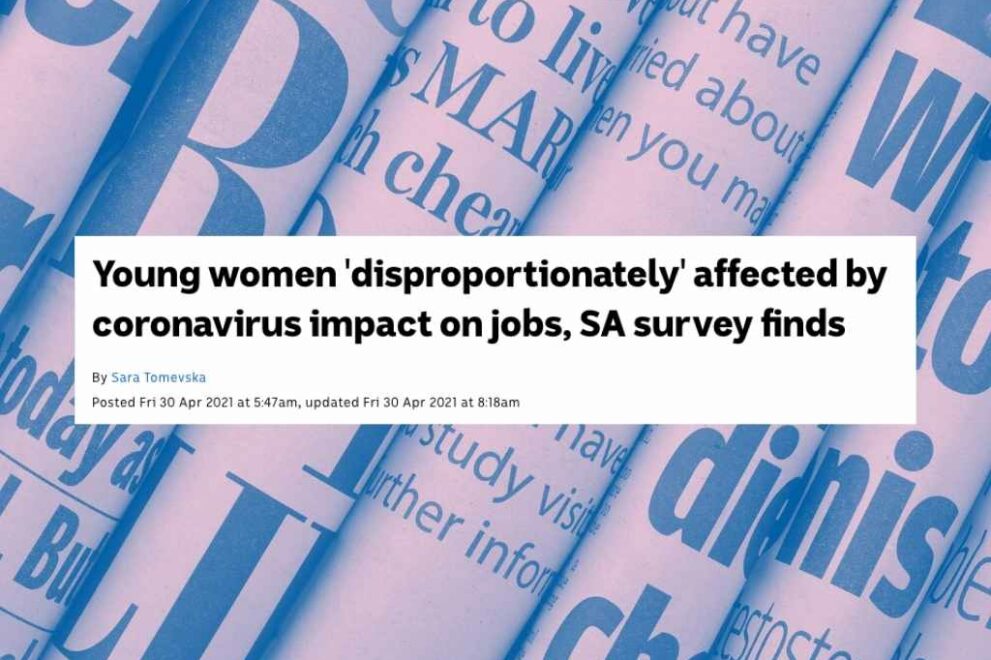Your cart is empty.


Your cart is empty.
The Working Women’s Centre SA attended the Small Steps, Safe Workplaces – Sexual Harassment Conference on 14–15 November in Hobart, Tasmania.
Hosted by Women’s Legal Service Tasmania, the event brought together experts from across Australia to foster collaboration on strategies for safer, sexual harassment-free workplaces.
Keynote speakers included Dr Anna Cody (Federal Sex Discrimination Commissioner), Ms Kate Eastman AM SC, and the Hon Justice Turnbull. Over the two-day event, discussions covered trauma-informed responses, workplace cultural safety, sexual harassment law updates, support for victim-survivors, and safety for sex workers.
Abbey Kendall, CEO of Working Women’s Centre Australia, shared updates on the national rollout of Working Women’s Centres, while Sharmilla Bargon and Regina Featherstone presented the Let’s Talk About Confidentiality report, focusing on research related to Non-Disclosure Agreements (NDAs).
The conference provided a valuable platform to connect with lawyers, community sector representatives, and organisations, highlighting the importance of collaboration in creating safer workplaces.

You will have the opportunity to get free and confidential legal advice in relation to a wide range of workplace issues including wages and conditions, dismissals and sexual harassment. We will also discuss union membership and connect you with your union.
We have appointments available on:
Appointments will be conducted in person at SA Unions or via the phone. Clients can choose to attend in person or participate by telephone.
To book an appointment call: (08) 8410 6499 or you can make an online inquiry here:
https://wwcsa.org.au/enquiry-form/
Any details that you provide will be kept confidential and we do not make contact with your employer without your consent.
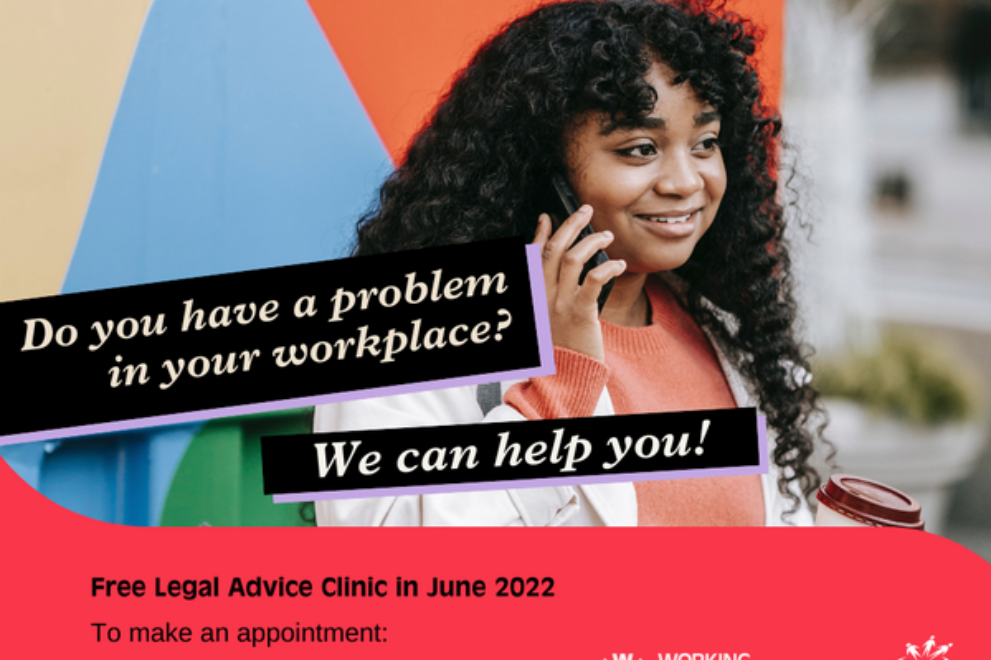
In the first 12 years of their child’s life, most women’s careers, finances and ability to participate in the workplace is seriously undermined by the rolling inequities in law and public policy about parenting and family.
The Working Women’s Centre SA invites Professor Rae Cooper and Associate Professor Elizabeth Hill, two pre-eminent experts in the world of women, family, and work, to discuss how public policy and legislation effects women, work, and families.
We will discuss the big-ticket public policies that rule the first 12 years of parenting:
We are going to examine these public policies and laws and ask the following questions:
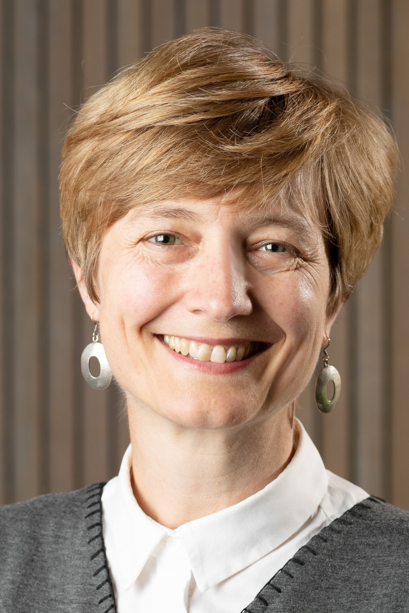
Associate Professor Elizabeth Hill
Elizabeth Hill is Associate Professor in political economy at The University of Sydney. Elizabeth is the Deputy Director of the new Gender Equality in Working Life Research Initiative at The University of Sydney and co-convenor of the Australian Work and Family Policy Roundtable. As a leading researcher on the future of women, work and care in Australia and the Asian region, she has collaborated on research into gender equality, work and care with leading national and international institutions, including the International Labour Organisation and UN Women. Elizabeth has served as a non-executive director on a number of non-profit Boards and is an experienced media commentator and advisor to government, unions, and business.
Her university webpage is https://www.sydney.edu.au/arts/about/our-people/academic-staff/elizabeth-hill.html
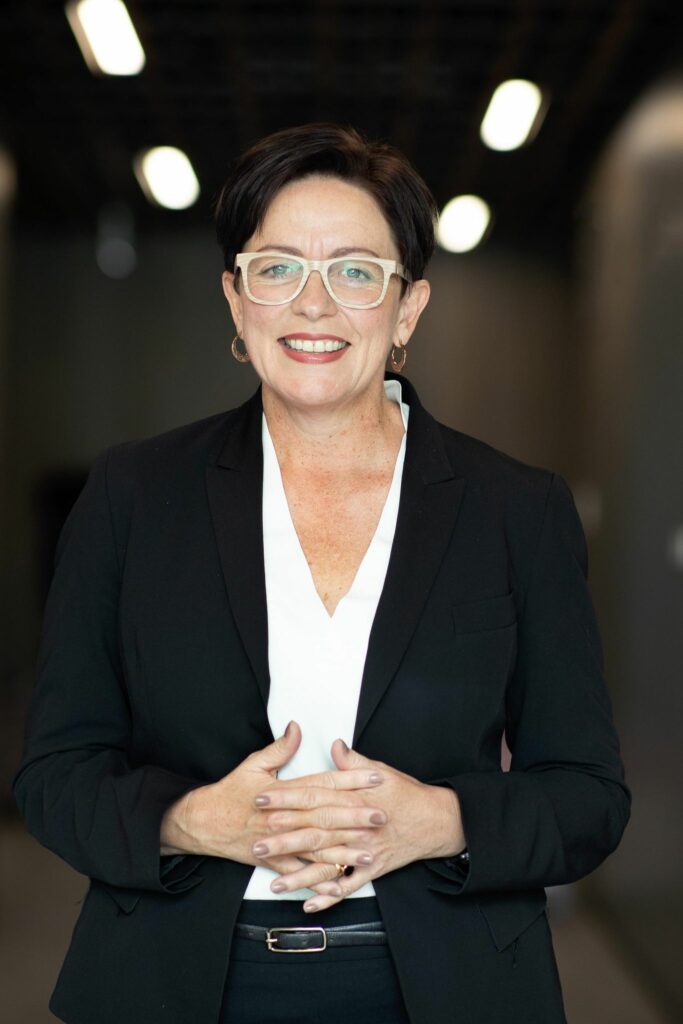
Professor Rae Cooper, AO
Rae is Professor of Gender, Work and Employment Relations at the University of Sydney Business School. She is Director of the newly formed University of Sydney Gender Equality in Working Life Research Initiative and is co-Director of the Women, Work and Leadership Research Group. Rae is President Elect of ILERA, is a past President and Executive member of AIRAANZ and is currently an editor of the Journal of Industrial Relations. Rae has published over 60 articles and chapters on industrial relations policy and legislation, trade unionism and collective bargaining, and women’s working lives. Her work has been funded by the Australian Research Council, state and federal government agencies, businesses and unions. Rae is known for her collaboration with labour market stakeholders having collaborated on research projects with key organisations including the AICD, ACTU, NSW Law Society, and the SDA. Rae has significant experience as a member of government and community sector boards and committees and has previously been a Director of the NSW TAFE Commission Board, Chair of the Board of Directors of Hearing Australia, Chair of the NSW Premier’s Expert Advisory Council on Women, and Chair of the NSW Working Women’s Centre. Rae was made an Officer of the Order of Australia in 2019 in recognition of her contributions to Australian higher education and workplace policy and practice.
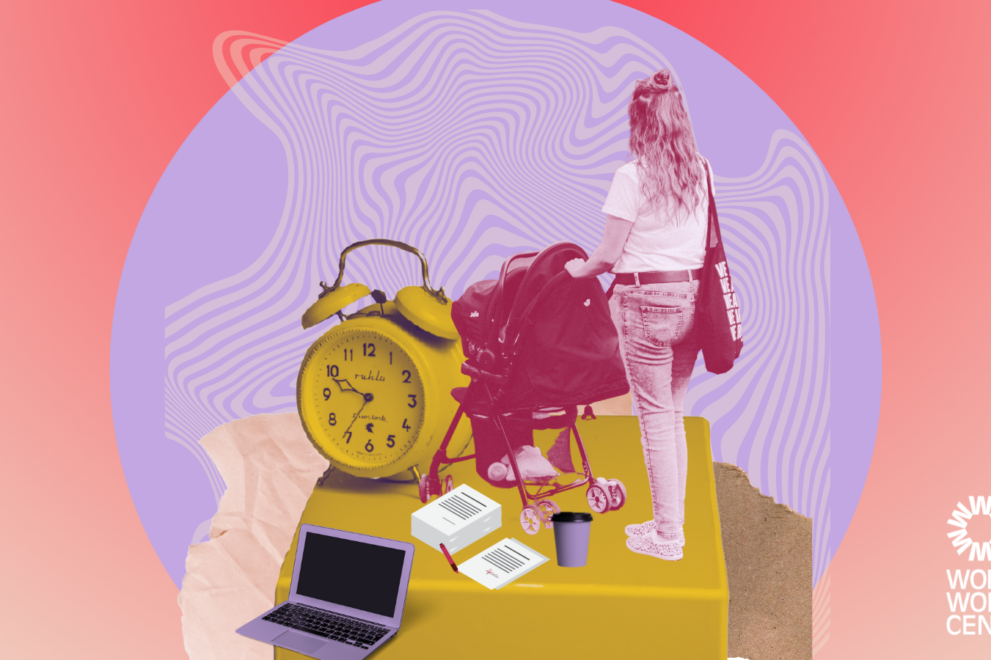
Appointments will be held at the Legal Advice Clinic – City West Campus on:
To make an appointment please telephone WWC SA on 8410 6499 or complete the online form at:
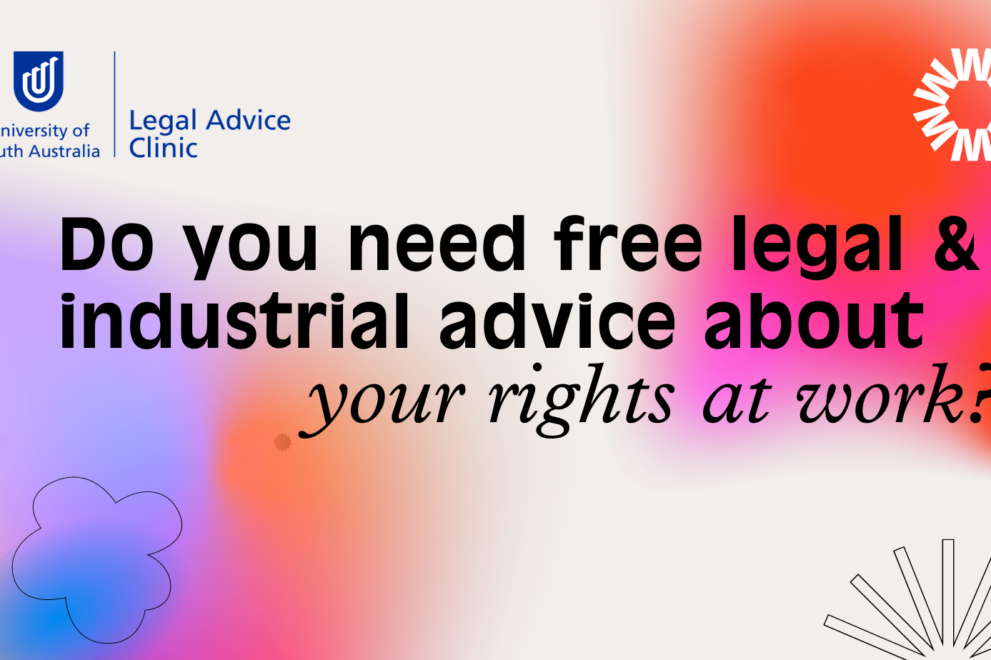
Have you experienced:
• Wage theft? Do you think you may not be being paid correctly?
• Unfair dismissal? Have you been dismissed from a job recently?
• Discrimination? Have you been treated badly at work due to race, gender or age?
• Sexual harassment?
• Bullying?
• Sham contracting? Does your employer call you a contractor, however you may be an employee?

This article was published by Croaky May 12 2021.
Read the full article on Croaky’s website here
Introduction by Croakey: The “shocking global disparity” in access to vaccines remains one of the biggest risks to ending the pandemic, the World Health Organization’s Director-General warned this week.
Dr Tedros Adhanom Ghebreyesus said high and upper-middle income countries, representing 53 percent of the world’s population, have received 83 percent of the world’s vaccines.
By contrast, low and lower-middle income countries account for 47 percent of the world’s population but have received just 17 percent of the world’s vaccines.
Speaking to a media briefing on 10 May, Dr Tedros cautioned against complacency as the number of COVID-19 cases and deaths plateau globally, notwithstanding rapidly increasing cases numbers and deaths in the South-East Asia region.
“Any decline is welcome, but we have been here before,” he said. “Over the past year, many countries have experienced a declining trend in cases and deaths, have relaxed public health and social measures too quickly, and individuals have let down their guard, only for those hard-won gains to be lost.”
The WHO Foundation has launched a “Together for India” appeal to raise funds to support WHO’s work in India, including the purchase of oxygen, personal protective equipment and medicines.
Dr Tedros said the spread of variants, increased social mixing, the relaxation of public health and social measures and inequitable vaccination are all driving transmission.
“My message to leaders is, use every tool at your disposal to drive transmission down, right now,” he said.
“Even if your country has a downward trend, now is the time to surge your capacities. Even in countries with the highest vaccination rates, public health capacities must be strengthened to prepare for the possibility of vaccine-evading variants, and for future emergencies.”
Meanwhile, public health researcher Alison Barrett details some of the latest research news on COVID vaccination and useful vaccination resources in the latest edition of the COVID-19 wrap, as well as reporting on the pandemic’s impact on women.
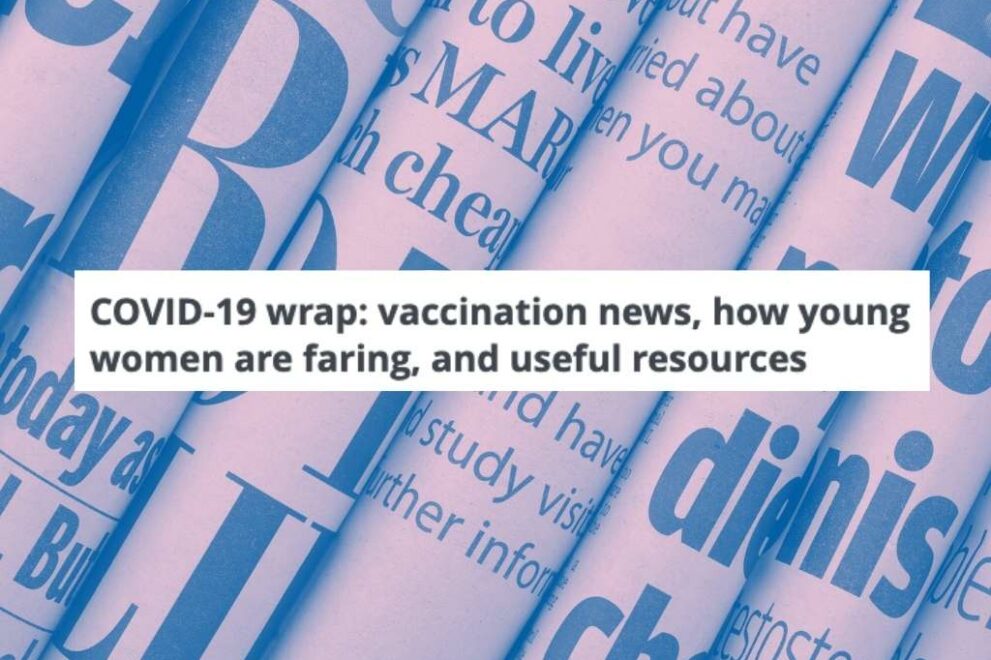
This article was published by ABC News Friday 30th April 5.47am 2021.
Read the full article on the ABC’s website here
A sample survey of South Australian women aged under 30 has revealed heightened anxiety and a lack of optimism about job prospects due to the global coronavirus pandemic.
Almost 300 women aged under 30 were surveyed by the Working Women’s Centre SA between September 2020 to February 2021.
More than 70 per cent of respondents said they had become “more anxious, sad or depressed” due to the pandemic, and 44 per cent said they were “discouraged” about the prospect of finding work.
“The social and economic ramifications of COVID-19 have disproportionately affected young women compared to other demographics,” the report stated.
More than half of respondents found “their way of working disrupted” and more than a quarter “had their hours or pay reduced”.
Nearly half said they were “very worried or anxious” about money.
“Between the time that SA’s first COVID-19 restrictions entered force in March 2020 and January 2021 all-male jobs had recovered, while female jobs remained well below pre-pandemic levels,” the report stated, citing Australian Bureau of Statistics data.
“This is a stark demonstration of the vulnerability of female jobs to disruption.
Working Women’s Centre youth project officer Maddie Sarre said the findings represented “a snapshot” of how young women in SA continued to be affected by coronavirus and its ongoing economic effects.
“On the other hand, those that continued to work during the pandemic faced increased pressure, through increased workloads and stress in frontline sectors such as healthcare.
